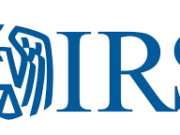April 15, 2015
Dear Representative:
Application of the gift tax to 501(c)(4) donors raises serious constitutional questions, and threatens to hamstring smaller or start-up citizens’ groups. This bill would lock-in current policy at the Internal Revenue Service that exempts contributors to 501(c)(4) social welfare organizations from the gift tax. We applaud Congress for taking steps to end uncertainty on the question.
Nonprofit organizations play a crucial role in American society by allowing citizens to associate and speak with one voice on a wide variety of important public policy issues. The clarity that would be provided by this legislation would help ensure the continued vitality of these important organizations and would help safeguard taxpayers and nonprofit organizations against unfair or biased treatment by the IRS in the future.
It would also create parity between 501(c)(4) organizations and charities and political groups, which are already exempt from the tax under existing law. There is no sound tax policy reason to impose a gift tax on contributions to 501(c)(4) organizations, which combine features of 501(c)(3) charities and 527 political organizations, while exempting contributions to a 501(c)(3) or 527 organization if it stands alone.
Perhaps more important, however, application of the gift tax in this context would raise serious problems under the rights of free speech and freedom of association guaranteed by the Constitution.
While it is true that the government may opt not to subsidize certain types of activities through tax exemptions or deductions, it may not burden expressive or associational activity through taxation, and the gift tax would present an enormous burden on 501(c)(4) groups. Were it applied, many donors would simply stop giving money to various causes, or would give only up to the annual exclusion of $14,000.
Smaller and less well-resourced nonprofits often rely on larger gifts to exist at all. To the extent the government would be putting some social welfare groups out of business through the imposition of the gift tax, it raises constitutional issues of the highest moment.
Additionally, imposing the gift tax on donors to nonprofit groups could present an unconstitutional condition. While, again, the government may choose not to subsidize certain activities through tax exemptions or deductions, it may not condition the exercise of a constitutional right—the freedom to associate with social welfare groups by donating money to them—on payment of the tax.
In light of the current IRS policy that the tax does not apply to such donations, Congress should enact that policy into law, which would protect the First Amendment rights to speak and associate, provide clarity for nonprofit groups, and support the agency on this important issue.
Sincerely,
Alliance for Justice
American Civil Liberties Union
Center for Competitive Politics
American Association of University Women Action Fund
American Principles in Action
Americans for Tax Reform
Council for Citizens Against Government Waste
FreedomWorks, Inc.
Human Rights Campaign
Tea Party Patriots
The undersigned attorneys are doing so in their individual capacity and not on behalf of their law firms.
Jeffrey P. Altman
Whiteford Taylor Preston
Gregory L. Colvin
Adler & Colvin
Alan P. Dye
Webster, Chamberlain & Bean, LLP
Craig Engle
Arent Fox LLP
Rosemary E. Fei
Adler & Colvin
Benjamin P. Keane
McKenna Long & Aldridge LLP
Elizabeth Kingsley
Harmon, Curran, Spielberg & Eisenberg, LLP
Jason Kohout
Foley & Lardner LLP
Cleta Mitchell
Foley & Lardner LLP
Stefan Passantino
McKenna Long & Aldridge LLP
John Pomeranz
Harmon, Curran, Spielberg & Eisenberg, LLP
Barbara Rhomberg
Law Office of Barbara Rhomberg
Jason Torchinsky
Holtzman Vogel Josefiak PLLC
Charles M. Watkins
Webster, Chamberlain & Bean, LLP
Jeffery L. Yablon
Pillsbury Winthrop Shaw Pittman LLP
Barnaby Zall
Weinberg, Jacobs & Tolani, LLP
https://ifs-site.mysitebuild.com/wp-content/uploads/2015/04/2015-04-15_HR-1104-Coalition-Letter_Fair-Treatment-For-All-Gifts-Act.pdf














